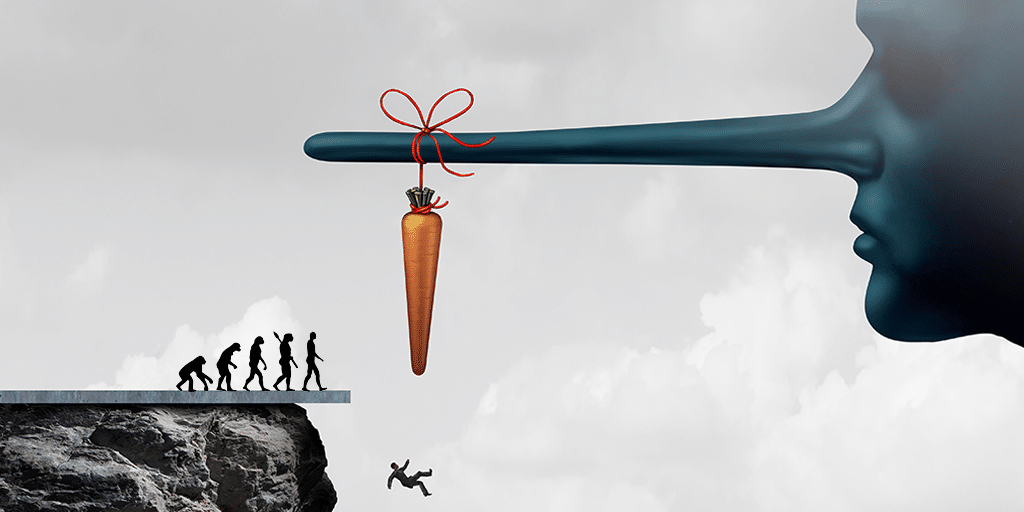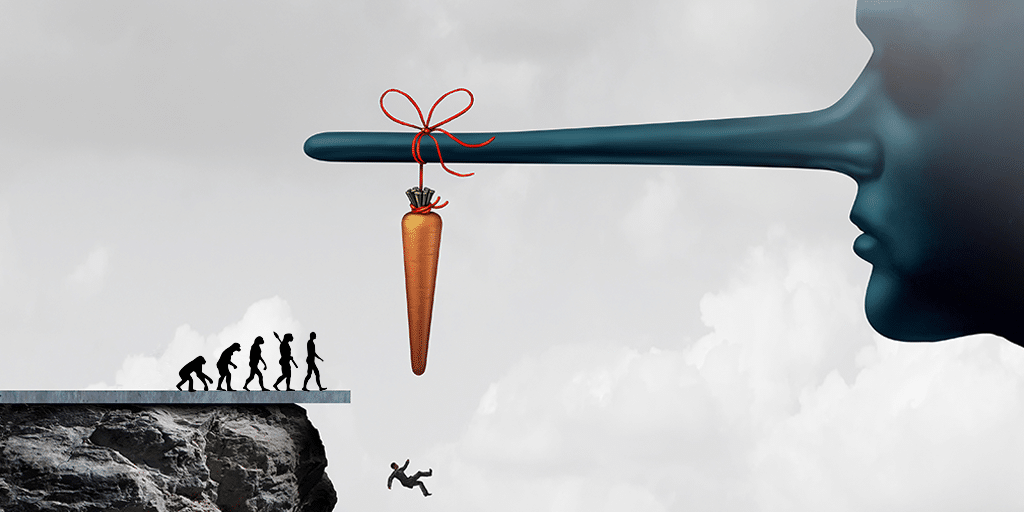What is the Probability of Evolution Occurring Solely by Natural Means?-Part 3
| By: Dr. John Ankerberg, Dr. John Weldon; ©2001 |
| MThere is an overwhelming lack of evidence for life originating from non-life on this planet, but what about on other planets? If scientists can find such evidence on Mars, what will that do to bolster the theory of evolution? |
What is the Probability of Evolution Occurring Solely by Natural Means?—Part Three
On April 25 and 26, 1962, a scientific symposium was held at the Wistar Institute of Anatomy and Biology in Philadelphia, Pennsylvania, in which some of the most distinguished evolutionary scientists were present.
At the beginning of this Symposium which was titled, “Mathematical Challenges to the NeoDarwinian Interpretation of Evolution,” the Chairman, Sir Peter Medawar of the National Institute for Medical Research in London, England, stated the reasons why they had gathered:
- …the immediate cause of this conference is a pretty widespread sense of dissatisfaction about what has come to be thought of as the accepted evolutionary theory in the English-speaking world, the so-called neo-Darwinian Theory…. These objections to current neo-Darwinian theory are very widely held among biologists generally; and we must on no account, I think, make light of them. The very fact that we are having this conference is evidence that we are not making light of them.[1]
In his symposium paper, “Inadequacies of Neo-Darwinian Evolution as a Scientific Theory,” Dr. Murray Eden, Professor of Electrical Engineering at MIT, emphasized the following: “It is our contention that if ‘random’ [chance] is given a serious and crucial interpretation from a probabilistic point of view, the randomness postulate is highly implausible and that an adequate scientific theory of evolution must await the discovery and elucidation of new natural laws, physical, chemical and biological.”[2]
In “Algorithms and the Neo-Darwinian Theory of Evolution,” Marcel P. Schutzenberger of the University of Paris, France, calculated the probability of evolution based on mutation and natural selection. Like many other noted scientists, he concluded that it was “not conceivable” because the probability of a chance process accomplishing this is zero: “…there is no chance (<10-1000) to see this mechanism appear spontaneously and, if it did, even less for it to remain…. Thus, to conclude, we believe there is a considerable gap in the NeoDarwinian Theory of evolution, and we believe this gap to be of such a nature that it cannot be bridged within the current conception of biology.”[3]
Evolutionary scientists have called just one chance in 1015 (one chance in a quadrillion) “a virtual impossibility.”[4] So, how can scientists rationally believe in something that has only one chance in 101,000? After all, how small is one chance in 101,000? It’s infinitesimally small—one chance in 1012 is only one chance in one trillion. On a practical level, if a horse at a horse race had only one chance in a trillion (let alone one chance in 101,000) of placing first, second or third, how much money would anyone place on a bet? So should anyone gamble convictions about God, reality and heaven and hell on the basis of one chance in 101,000?
Since most people really cannot comprehend odds like these, let’s try and provide an illustration of the “chances” we are dealing with.
We can perhaps better gauge the size of one chance in 101,000 by considering the infinitely smaller sample figure of 10171. How large is this figure? First, consider that the number of atoms in the period at the end of this sentence is approximately 3,000 trillion. Now, in 10171 years an ant could actually transport all the atoms, one at a time, in 600,000 trillion, trillion, trillion, trillion universes the size of ours, from one end of the universe to the other (assuming a distance of 30 billion light-years) traveling at the dismally slow speed of one inch every 15 billion years![5]
Yet a figure of one chance of 10171 cannot even scratch the surface of one chance in 101,000—the “chance” that life might supposedly evolve. Again, we ask, who can rationally believe in something whose odds are one chance in 101,000, let alone the much more accurate figure of one chance in 102,000,000,000, the “chance” that the esteemed Dr. Carl Sagan estimates is needed to evolve a man? Also, please note that in exponential notation, every time we add one number to the exponent, we multiply the number itself by a factor of ten. Thus, one chance in 10171 is ten times smaller than one chance in 10172. One chance in 10171 is one million times smaller than one chance in 10177. And one chance in 10183 is one trillion times smaller than one chance in 10171. So where do you think we end up with odds like one chance in 102,000,000,000?
This kind of probability “progression into absurdity,” is the very reason Borel devised his Single Law of Chance—to show that beyond a certain point, some things will never happen. For example, what are the odds that elephants will ever evolve into helicopters? There are none, no matter how much time we allow for the event to occur.
So what kind of logic deduces that the infinitely more complex things in nature resulted from chance when all the facts and evidence we possess concerning every single manmade object in existence around the world says these much simpler objects had to result from intelligence, plan and design? If the “simple” objects demand intelligence, how do the infinitely more complex objects arise solely by chance?
So, isn’t it also true that scientists require faith to believe in evolution? But can this even be considered faith? Faith in what? Doesn’t faith require some actual object or entity?
If, for the purposes of argument, there are only two possible answers to the question of origins, then the disproving of one option logically proves the other. If A or B are the only logically considered explanations of an event, and A is disproved, only B can be considered the actual explanation. If the chances of evolution occurring are, for example, one in 101,000, then the chance of creation occurring would be just its opposite— the odds being 99.9 (followed by 998 more 9s). The eminent evolutionist George Wald of Harvard University has stated that a 99.995 percent probability is “almost inevitable.”[6] Then what of 99.99999999999999 percent (plus 985 more 9’s)—the “chance” that creation has occurred?
Even Charles Darwin, who believed his own theory was “grievously hypothetical,”[7] confessed the same, giving emotional content to his doubts when he said, e.g., “…the eye to this day gives me a cold shudder.”[8] To think the eye had evolved by natural selection, Darwin said, “seems, I freely confess, absurd in the highest possible degree.”[9] But he thought the same about something so simple as a peacock’s feather, which he claimed, “makes me sick.”[10] Of course, anyone who has knowledge of the intricacies of something like the human eye immediately realizes the problem Darwin sensed. How could an organ of such infinite magnificence have ever originated by random chance? Today, many modern biologists are even more acutely aware of the problems evolutionary theory faces when confronting something like the complexity of the human eye.
- It is easy to sympathize with Darwin. Such feelings have probably occurred to most biologists at times, for to common sense it does indeed appear absurd to propose that chance could have thrown together devices of such complexity and ingenuity that they appear to represent the very epitome of perfection….
- Aside from any quantitative considerations, it seems intuitively impossible that such self-evident brilliance in the execution of design could ever have been the result of chance. For, even if we allow that chance might have occasionally hit on a relatively ingenious adaptive end, it seems inconceivable that it could have reached so many ends of such surpassing “perfection.”[11]
L. Harrison Matthews, the eminent biologist, wrote the following in his introduction to Darwin’s The Origin of Species. He noted that biology was in the position of being founded on an unproved theory that nearly placed it in the category of a “religious” faith:
- In accepting evolution as a fact, how many biologists pause to reflect that science is built upon theories that have been proved by experiment to be correct, or remember that the theory of animal evolution has never been thus proved?….
- The fact of evolution is the backbone of biology, and biology is thus in the peculiar position of being a science founded on an unproved theory—is it then a science or a faith? Belief in the theory of evolution is thus exactly parallel to belief in special creation—both are concepts which believers know to be true but neither, up to the present, has been capable of proof.[12]
(to be continued)
Notes
- ↑ Paul S. Moorehead and Martin M. Kaplan, Mathematical Challenges to the Neo-Darwinian Interpretation of Evolution (The Wistar Institute Symposium Monograph Number 5) (Philadelphia, PA: The Wistar Institute Press, 1967), p. xi, third emphasis in original.
- ↑ Murray Eden, “Inadequacies of Neo-Darwinism Evolution as a Scientific Theory” in ibid., p. 109.
- ↑ Marcel P. Schutzenberger, “Algorithms and the Neo-Darwinian Theory of Evolution” in Moorehead and Kaplan, eds., p. 75; cf., Bird, I, pp. 79-80; for reasons why natural selection would not modify randomness and decrease these probabilities, see Bird, I, pp. 158- 165.
- ↑ J. Allen Hynek, and Jacque Vallee, The Edge of Reality, (Chicago: Henry Regenery, 1975), p. 157.
- ↑ cf., James Coppedge, Evolution: Possible or Impossible? (Grand Rapids, MI: Zondervan, 1973), p. 118-120.
- ↑ George Wald, “The Origin of Life,” in The Physics and Chemistry of Life (NY: Simon and Schuster, 1955), p. 12.
- ↑ Charles Darwin, 29 November 1859, More Letters (1903), 1:126 from David L. Hull, Darwin and His Critics: The Reception of Darwin’s Theory of Evolution by the Scientific Community (Cambridge, MA: Harvard University Press, 1973), p. 9.
- ↑ Francis Darwin, ed., The Life and Letters of Charles Darwin (1887, ed.) Vol. 2, 67 from Bird, I, p. 73.
- ↑ J. W. Burrow, ed., in Charles Darwin, The Origin of Species By Means of Natural Selection (Baltimore, MD: Penguin, 1974), p. 217.
- ↑ Francis Darwin, ed., Vol. 2, p. 296.
- ↑ Denton, Evolution: A Theory in Crisis, p. 326-327.
- ↑ L. Harrison Matthews, Introduction in Charles Darwin, The Origin of Species (London: J. M. Dent & Sons, 1976), pp. x, xi. (See page 33.)










[…] Read Part 3 […]
Awesome text! I’m from Pernambuco (Brazil). And I have taught in teenager’s class of my local church. I’ve looked for the paper written by Murray Eden mencioned here, but it’s not available on internet. I really graciate if you could help us showing how to get it! God bless you and your ministry.